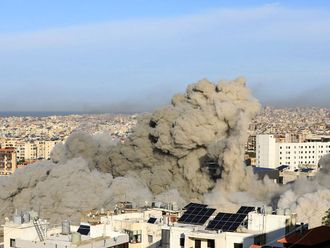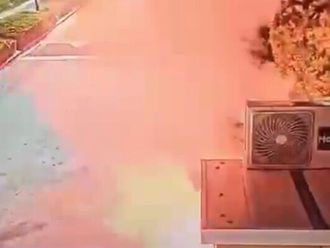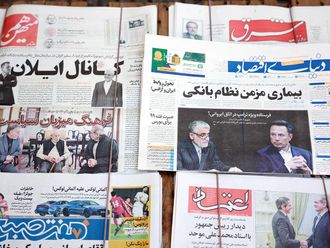Tehran: Iran's parliament approved a law yesterday calling on the government to retaliate against any countries that inspect the Islamic state's ships and aircraft or refuse to provide fuel to its aircraft as part of foreign sanctions, the semi-official Fars news agency reported.
The lawmakers adopted the bill in response to the latest round of sanctions imposed on Iran over its nuclear programme by the United Nations Security Council, the United States and the European Union.
The bill included no details of what form retaliation should take, and it was not immediately clear if it was more than a symbolic gesture of protest against the sanctions.
Uranium supply
The legislation also made the government responsible for supplying adequate amounts of 20 per cent enriched uranium for Iran's nuclear research reactors for medical, industrial and scientific use, Fars said.
The UN Security Council imposed a fourth round of sanctions on Iran on June 9 over its disputed nuclear programme, and the United States and the European Union have imposed additional sanctions of their own.
Major powers suspect Iran is using its nuclear programme to develop atomic weapons, but Tehran says it is enriching uranium only for electricity generation.
Ali Larijani, the speaker of the Iranian parliament, told reporters in Geneva "If they want to act illegally and inspect Iran's ships, then we will retaliate."
Retaliation
Larijani, formerly Iran's chief nuclear negotiator, did not say how Iran would retaliate for searches of its ships for suspected nuclear-linked material.
In Brussels, the European Union diplomats said that the foreign ministers will adopt tighter sanctions against Iran next week, including measures to block oil and gas investment and curtail its refining and natural gas capability.
A draft declaration prepared for a meeting of EU foreign ministers showed they would approve a decision taken by EU leaders on June 17 to adopt further sanctions over Tehran's nuclear programme, and also call on Iran to resume talks.
The measures, which go beyond steps approved by the United Nations on June 10, are designed to put pressure on Tehran to return to talks on its uranium enrichment programme which Western powers believe is designed to produce nuclear weapons.












